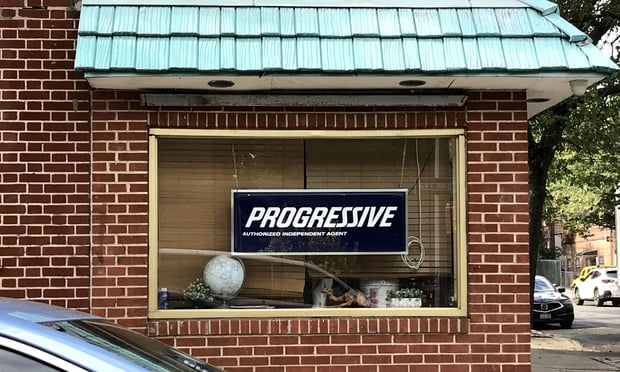If you ask Mac Wesson to review some of the highlights of his term as NAPSLO's president, the first thing he'll talk about--in a soft-spoken, even-toned manner--is the need to trumpet a message.
"At the very beginning of my term, one of the goals I wanted to accomplish was to be a better communicator [about] what NAPSLO does," he said.
NAPSLO's done a decent job of publicizing its work through newsletters and Web site updates, "but I've always felt that we've been a little bit too shy about it. We do an awful lot that deserves the appreciation of the industry and our members," he said, going on to chronologically detail many achievements of NAPSLO's committees and staff this year.
Highlights included hiring a lobbying firm and government affairs director, and creating a political action committee--all in an effort to ensure that state and federal regulators and legislators pay attention to NAPSLO's principles, not the least of which is freedom from regulation of surplus lines rates and forms.
"There's a lot of momentum behind us right now," he said--adding the expansion of the E&S schools and the growth of NAPSLO's annual convention to his list of highlights.
Mr. Wesson said he didn't think NAPSLO did a poor job of communicating such efforts before, but he wanted the industry to understand that "NAPSLO is more than the annual convention."
"I just think that our personality is defined as being somewhat institutional," he added. "We felt like we needed--stopping short of pounding our chests--to do a better job informing our members of things they might not know about, or that they might be taking for granted if they did."
Beyond speaking to the media to raise awareness, Mr. Wesson "hits the high points" of the association's accomplishments through NAPSLO newsletters and e-mails, and he said that NAPSLO will soon retain the services of an outside consulting firm to help. "I'd stop short of calling it a public relations campaign, but that's kind of what it is."
Some of the seemingly more difficult messages Mr. Wesson had to communicate this year related to a decision that had to be made about next year's annual meeting, scheduled to be held in New Orleans.
After Katrina, he said, "we gathered and asked ourselves the burning question--'Is New Orleans going to be able to take care of us in 2007 given the extent of devastation?'"
"We posed questions to the hotels. We went on record saying that this was an area of concern with us, and that we needed to have attention paid to it," he said.
After visiting the city, and talking to hotel representatives who agreed to make some financial concessions, and after weighing the options--"and finding that we didn't have any choice other than Atlanta on Labor Day weekend"--NAPSLO decided to stay with its commitment to New Orleans.
"We have communicated the entire [decision-making] process to our members, and I think they've embraced the idea," he said. "I wouldn't say it was a terribly difficult thing to do, but it gave us pause to be sure we were doing the right thing."
Mr. Wesson presents the case in a business-like manner befitting the chief operating officer of a large wholesaler--U.S. Risk in Dallas. But walking New Orleans' streets with three other executive committee members and three staffers also prompts him to share messages of inspiration.
"We thought it was going to be an impossible task" for the hotel managers "to convince us that they would be able" to take care of NAPSLO members and ensure their safety.
"What we saw when we got there was the phenomenal attitude of the people," he said. "They knew they had been knocked to the ground, but their attitude was, 'We're going to pick ourselves up. We're going to survive and make everything work.'"
"That stuck with us," he added.
Mr. Wesson has a different set of inspiring messages when asked about dealing with the challenges of a softening market.
"Our strategies really have to do with going back to basics," he said, referring to his firm. "Thankfully, our business is still a relationship-driven business, which means that people are the most important part of it. We constantly strive to instill in the minds of our people that it is their success that makes our success."
"We're a sales and service business. We should never lose sight of that," he added.
Mr. Wesson repeats part of the same message when asked what he tells young people considering careers in surplus lines about the appeal of the sector.
"I tell [them], 'Thank heaven this is still a relationship-based business. We are able to do what we do because the people we work with enjoy working with us and vice versa," he said. "And never lose sight of the fact that your relationships and your reputation are going to define you over time. Guard them both with all you have.'"
Want to continue reading?
Become a Free PropertyCasualty360 Digital Reader
Your access to unlimited PropertyCasualty360 content isn’t changing.
Once you are an ALM digital member, you’ll receive:
- Breaking insurance news and analysis, on-site and via our newsletters and custom alerts
- Weekly Insurance Speak podcast featuring exclusive interviews with industry leaders
- Educational webcasts, white papers, and ebooks from industry thought leaders
- Critical converage of the employee benefits and financial advisory markets on our other ALM sites, BenefitsPRO and ThinkAdvisor
Already have an account? Sign In Now
© 2024 ALM Global, LLC, All Rights Reserved. Request academic re-use from www.copyright.com. All other uses, submit a request to [email protected]. For more information visit Asset & Logo Licensing.








